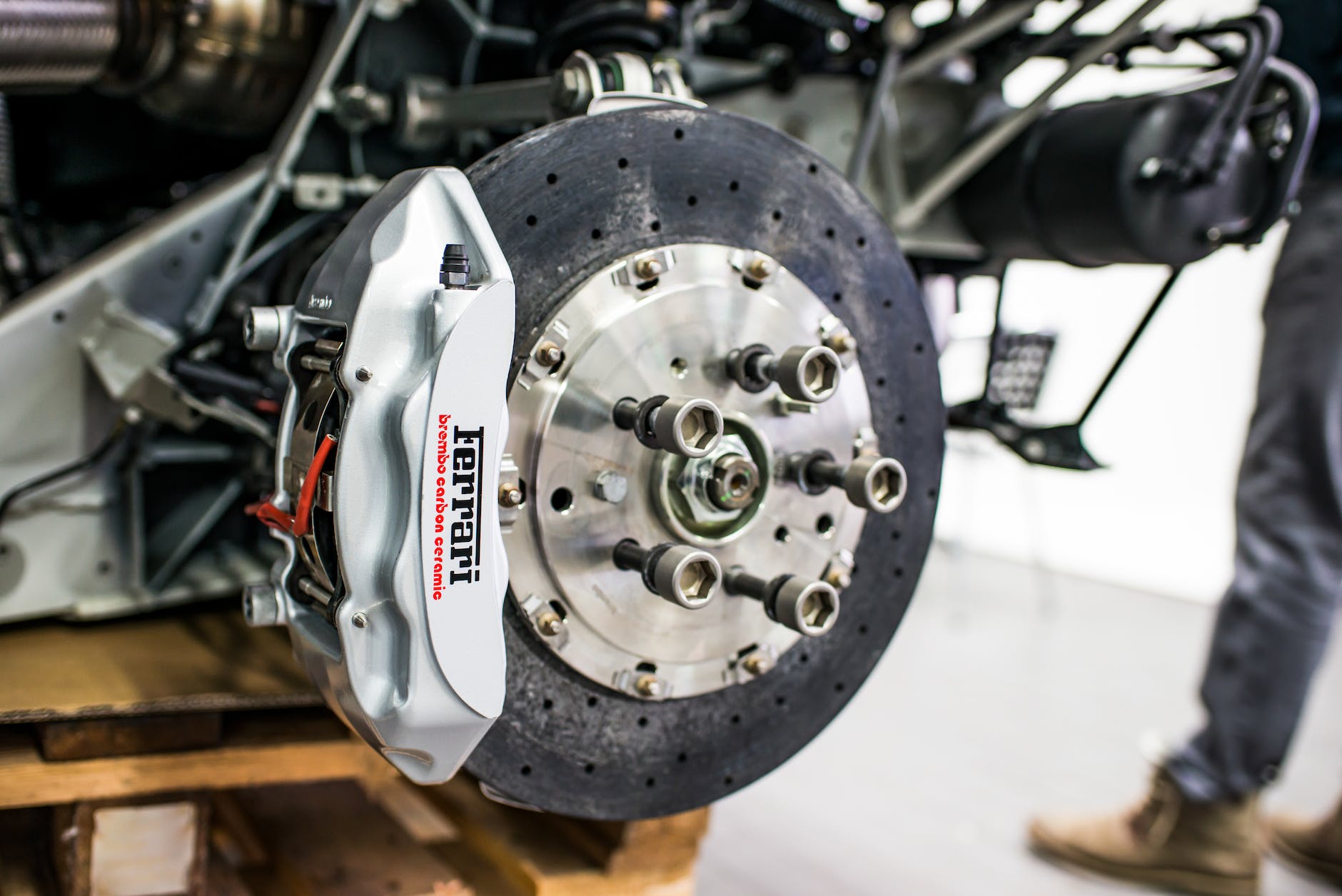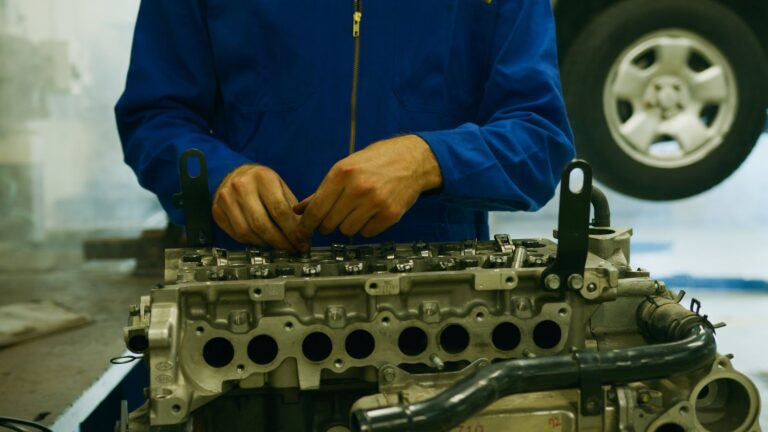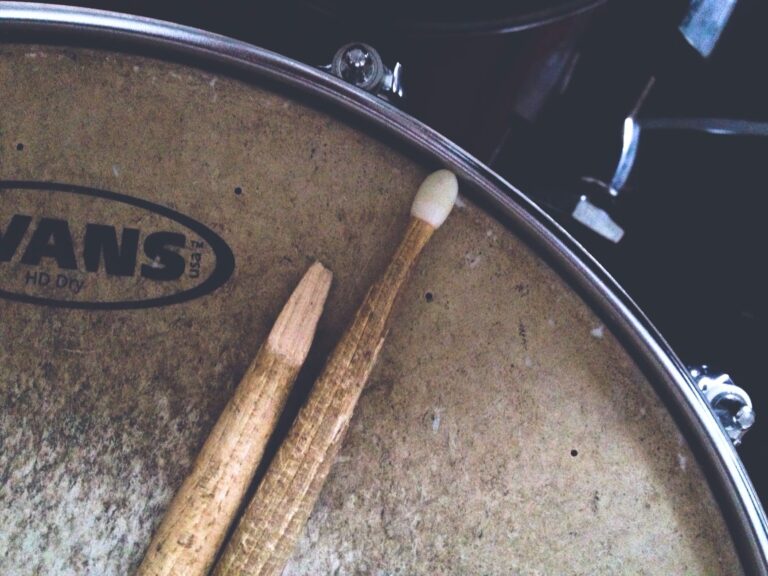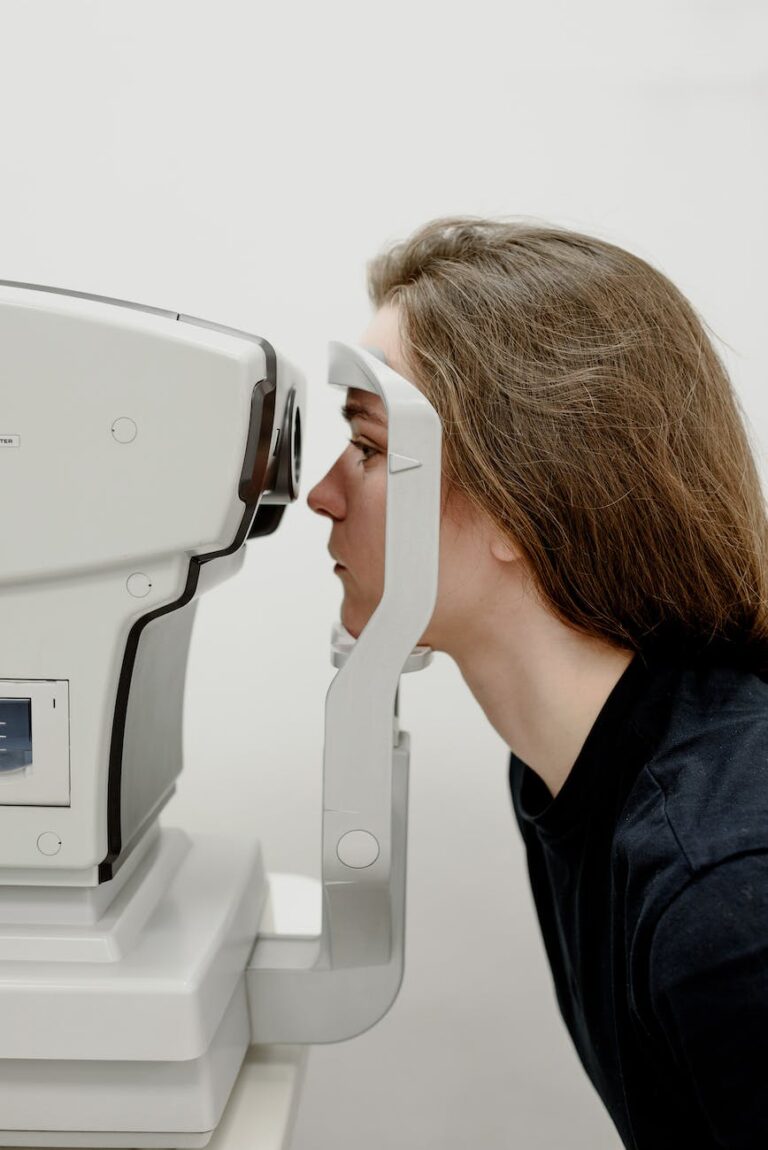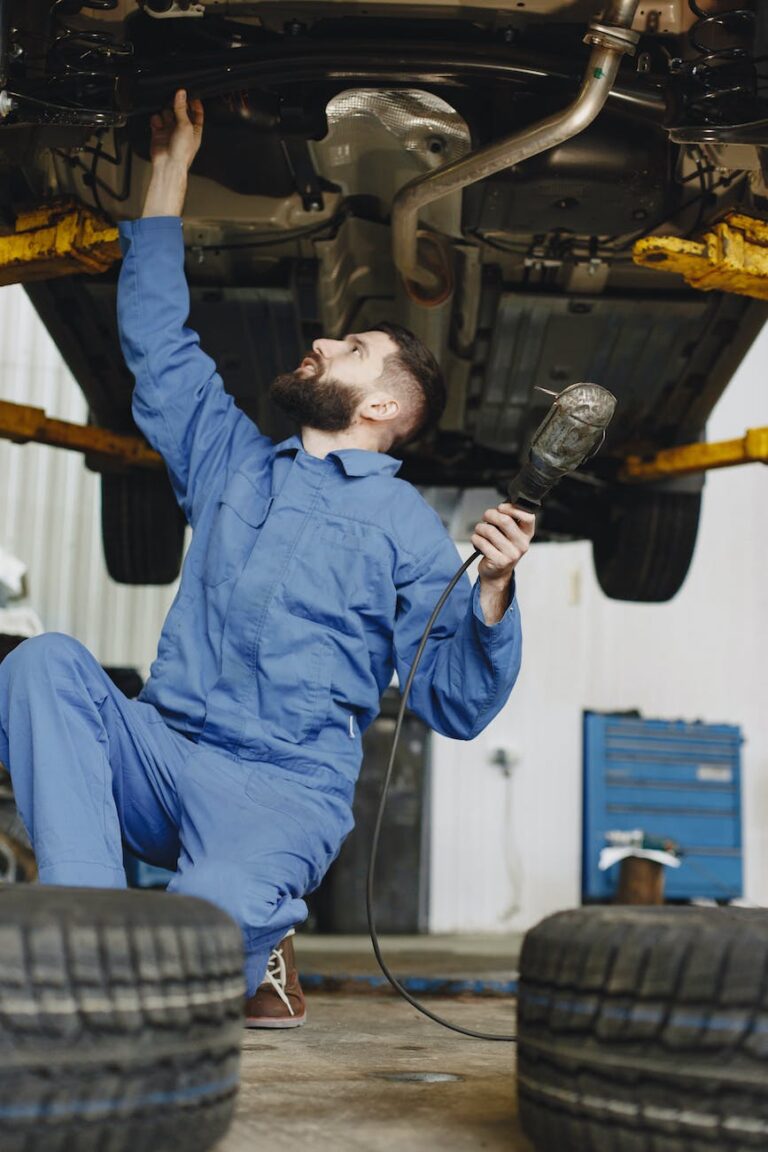Understanding Squeaky Brakes
When you hear your brakes making a squeaky noise, it’s important to understand the causes behind it and the significance of addressing the issue promptly.
Causes of Squeaky Brakes
Squeaky brakes can be attributed to various factors. Bad weather conditions, heavy loads, moisture build-up, or loose objects embedded in the brake system can all contribute to the squeaking noise (J.D. Power). Additionally, a buildup of dust, dirt, or debris on the brake pads can also lead to squeaky brakes (Allstate).
Worn or damaged brake pads, warped or unevenly worn components, missing brake system hardware, cold brakes, high-performance brake pads, debris lodged between the pad and rotor, lack of lubrication in drum braking systems, heavy-duty operation, sticking caliper or wheel cylinder, or faulty brake repair or maintenance can also cause squeaky brakes (Carfax). Identifying the specific cause of the noise is essential in determining the appropriate solution.
Importance of Addressing Squeaky Brakes
While squeaky brakes may not always indicate a serious problem, it is crucial to address the issue promptly. Squeaky brakes can be a warning sign of worn brake pads, which may need to be replaced soon. Ignoring the noise and failing to address the underlying issue can lead to further damage to the braking system and compromise your safety on the road.
Additionally, squeaky brakes can be a source of annoyance and discomfort, especially during daily commutes. Resolving the issue will not only ensure your safety but also enhance your driving experience.
To determine the best course of action for resolving squeaky brakes, it is recommended to have your brakes inspected by a professional. They will be able to identify the specific cause of the noise and provide the necessary repairs or maintenance. Don’t delay in seeking professional assistance, as resolving the issue promptly can prevent further damage and ensure the optimal performance of your braking system.
If you’re experiencing squeaky brakes and need professional brake services, consider reaching out to a brake repair shop or explore options for mobile brake services in your area. Remember, maintaining your brakes is an essential part of vehicle maintenance and helps ensure your safety on the road.
Resolving Squeaky Brakes on New Vehicles
Bedding-In the Brakes
If you’re experiencing squeaky brakes on your new vehicle, there’s a common technique called “bedding-in” the brakes that can help eliminate the noise. Bedding-in the brakes involves a series of controlled stops to properly mate the brake pads with the rotors. This process helps transfer a thin layer of brake pad material onto the rotor surface, reducing the likelihood of squeaking.
Here’s a step-by-step guide on how to properly bed-in your brakes:
-
Find a safe and open road: Look for a stretch of road where you can safely accelerate to moderate speeds and perform controlled stops without obstructing traffic or endangering yourself or others.
-
Speed up and brake gently: Accelerate your vehicle to around 60 mph and then gently apply the brakes to slow down to around 10 mph. Repeat this process around eight to ten times. The goal is to generate heat in the braking system, allowing the brake pad material to transfer onto the rotor surface.
-
Avoid harsh braking: During the bedding-in process, it’s important to avoid harsh or sudden braking. Instead, focus on gradually applying the brakes to allow the heat to build up and evenly transfer the brake pad material onto the rotors. This helps eliminate any glazing or high spots on the brake pads and rotors that can contribute to squeaking.
By following this bedding-in process, you can effectively break in your new brakes and reduce the likelihood of squeaky noise. However, if the squeaking persists or becomes more pronounced, it may be necessary to seek professional brake services from a qualified technician. They can perform a thorough brake inspection to identify any underlying issues that may be causing the squeaking and provide appropriate solutions.
Remember, regular brake maintenance is essential to ensure optimal performance and safety. If you’re in need of brake services or have any concerns about your vehicle’s braking system, don’t hesitate to consult a professional brake mechanic. They can assist with tasks such as brake pad replacement, brake fluid flush, brake line repair, and more.
By addressing squeaky brakes promptly and ensuring proper maintenance, you can enjoy a smooth and quiet driving experience while maintaining the safety of your vehicle.
Dealing with Squeaky Brakes from Moisture and Rust
When it comes to resolving squeaky brakes, one common cause is moisture and rust on the brake components. This can occur due to driving in wet or humid conditions, morning dew, or living in a humid area. It’s essential to address this issue promptly to ensure safe and quiet braking.
Clearing Rust Debris
If you notice squeaky brakes caused by rust on the brake discs, there is a simple technique you can try. Apply the brakes several times while driving at a low speed to clear out the rust debris. This action helps scrape off the surface rust, which is a common cause of brake squeaking, especially in the morning (Brakes To Go). As you use the brakes, the rust will gradually diminish, and the noise should dissipate after a few stops.
However, if the rust persists and the noise continues, it may be necessary to seek professional brake services. A brake mechanic will be able to assess the condition of your brake system and determine if further action, such as brake rotor replacement, is needed.
Preventive Measures
To prevent squeaky brakes caused by moisture and rust, there are a few preventive measures you can take:
-
Garage Parking: Whenever possible, park your vehicle in a garage or covered area. This helps protect the brake components from exposure to moisture and humidity, reducing the likelihood of rust formation.
-
Dry Braking: After driving in wet or rainy conditions, lightly press the brake pedal a few times while driving at a low speed. This helps generate friction and heat, which can dry out any moisture that may have accumulated on the brake discs.
-
Regular Maintenance: Ensure you stay up to date with regular brake maintenance, including brake inspections and necessary repairs. Regularly checking your brake system allows for early detection of any issues, including rust or moisture buildup, and can prevent them from developing into more significant problems.
Remember, if you’re experiencing persistent or severe brake squeaking, it’s always advisable to consult a professional brake repair shop. They have the expertise to identify the root cause of the issue and provide the appropriate solutions, whether it’s brake pad replacement, brake line repair, or other necessary repairs. Prioritizing the maintenance of your brake system ensures your safety and the smooth operation of your vehicle.
Squeaky Brakes and Worn Brake Pads
When it comes to squeaky brakes, one of the most common causes is worn brake pads. Brake pads play a crucial role in the braking system, providing the necessary friction to slow down or stop your vehicle. Over time, these pads can wear down, resulting in the development of a high-pitched squeaking noise while braking.
Significance of Brake Pads
Brake pads are essential components of the braking system. They are designed to withstand high levels of heat and friction generated during braking. As a result, they gradually wear down over time due to the constant contact with the brake rotors. When brake pads become too thin, the metal parts installed in the pads, known as wear indicators, come into contact with the metal rotors, producing a distinct squeaking noise as a warning sign that the brake pads need to be replaced soon (J.D. Power).
It is important to address worn brake pads promptly to ensure the continued safety and effectiveness of your vehicle’s braking system. Ignoring the squeaking noise can lead to further damage to the brake rotors, reduced braking performance, and potentially unsafe driving conditions.
Identifying and Replacing Worn Brake Pads
Identifying worn brake pads is crucial in resolving the issue of squeaky brakes. If you notice a high-pitched squeaking noise when applying the brakes, it is a strong indication that the brake pads have reached their minimum thickness and should be replaced soon.
Replacing worn brake pads is a job that can be done by experienced DIY enthusiasts, but it is recommended to seek professional assistance from a qualified brake service provider or brake mechanic to ensure proper installation and optimal braking performance. Professional brake technicians have the expertise to inspect the entire braking system, identify any additional issues, and perform a thorough brake pad replacement.
By replacing worn brake pads with new ones, you can eliminate the squeaking noise and restore the proper functionality of your vehicle’s brakes. It is important to choose high-quality brake pads that are suitable for your specific vehicle make and model. Consult with a professional brake service provider or refer to your vehicle’s owner’s manual for recommendations on the appropriate type of brake pads for your vehicle.
Regular maintenance and inspection of the brake system can help prevent excessive wear of brake pads. It is advisable to have your brakes inspected by a professional brake repair shop at regular intervals or whenever you notice any unusual noises or changes in braking performance. This will ensure that any potential issues, including worn brake pads, are identified and addressed promptly, keeping your vehicle safe and reliable on the road.
By understanding the significance of brake pads and promptly replacing worn ones, you can effectively resolve the issue of squeaky brakes and maintain the safety and performance of your vehicle’s braking system. Remember to consult with a professional brake service provider for expert advice and assistance in addressing any brake-related concerns you may have.
Other Factors that Cause Squeaky Brakes
Aside from the common causes mentioned earlier, there are other factors that can contribute to squeaky brakes. These include loose parts in the brake system and dust, dirt, and debris buildup.
Loose Parts in the Brake System
Squeaky brakes can sometimes be caused by loose parts within the brake system. If components such as brake pads, calipers, or hardware are not properly secured or have become damaged, they can create friction and produce a squeaking noise (J.D. Power). It’s crucial to thoroughly examine the vehicle to check for any loose or worn-out components. If you suspect loose parts are the cause of the noise, it’s recommended to seek professional help from a reputable brake repair shop.
Dust, Dirt, and Debris Buildup
Another factor that can lead to squeaky brakes is the accumulation of dust, dirt, and debris within the brake system. Over time, these particles can find their way between the brake pads and rotors, causing an unpleasant noise when the brakes are engaged. If you suspect dust or debris is the culprit, it’s essential to have a brake mechanic inspect and disassemble the brakes to clear the debris (Carfax). Regular brake maintenance and brake system check can help prevent excessive buildup and keep your brakes functioning smoothly.
It’s important to note that if the squeaking noise is particularly loud or persistent, it could indicate a more serious problem with your brakes (Brakes To Go). In such cases, it’s crucial to have a professional brake inspection to identify and resolve any underlying issues. Ignoring persistent brake noise can lead to further damage and compromise the safety of your vehicle. Therefore, it’s always recommended to consult with a qualified brake mechanic to ensure your brakes are in optimal condition.
Understanding the various factors that can contribute to squeaky brakes allows you to take appropriate measures to address the issue. Whether it’s securing loose parts or clearing debris, maintaining a well-functioning brake system is essential for the safety and performance of your vehicle. Regular brake inspections, maintenance, and prompt repairs are key to keeping your brakes operating quietly and effectively.
Solutions for Fixing Squeaky Brakes
If you’re experiencing squeaky brakes, there are several solutions you can try to address the issue. It’s important to note that the cause of the squeaking can vary, and the appropriate solution may depend on the underlying problem. Here are three common approaches to fixing squeaky brakes: cleaning brake components, applying brake lubricant, and brake pad replacement.
Cleaning Brake Components
One potential solution to fix squeaky brakes is to clean the brake components, such as the rotor and brake pads, with brake cleaner. This helps remove any dirt, debris, or brake dust that may have accumulated on the surfaces. Cleaning the components can sometimes eliminate the noise by restoring proper contact between the brake pads and the rotor. Make sure to follow the manufacturer’s instructions for the proper use of brake cleaner.
Applying Brake Lubricant
Another solution to fix squeaky brakes is to apply a high-temperature brake lubricant, such as a silicone-based lubricant, to the back of the brake pads. This helps reduce friction and eliminate the noise caused by the brake pads rubbing against other components. Applying the lubricant to the proper areas can help ensure smooth movement and prevent squeaking. As with any maintenance procedure, it’s essential to use the appropriate lubricant and follow the instructions provided by the manufacturer.
Brake Pad Replacement
In some cases, squeaky brakes may indicate that the brake pads are worn and need to be replaced. Modern brake pads often come with a built-in indicator that makes contact with the rotor, generating a squealing or grinding sound when the pads are nearing the end of their useful life. If you suspect that the brake pads are the source of the noise, it’s advisable to have them inspected by a brake mechanic and replaced if necessary. Brake pad replacement ensures optimal braking performance and can eliminate squeaking caused by worn-out pads.
It’s worth noting that these solutions are general recommendations and may not apply to every situation. If you’re unsure about the cause of the squeaking or if the noise persists after attempting these solutions, it may be necessary to seek professional help. A brake repair shop can perform a thorough brake inspection to identify and resolve any underlying brake issues. They have the expertise and specialized tools to diagnose and address brake problems effectively.
Remember, maintaining your brakes is crucial for your safety on the road. If you’re experiencing any brake-related issues, it’s essential to address them promptly. Regular brake maintenance and inspection can help prevent potential problems and ensure your brakes are in optimal working condition.
When to Seek Professional Help for Squeaky Brakes
While there are several DIY methods to address squeaky brakes, there are instances when it is necessary to seek professional help. If you’re experiencing persistent squeaky brakes despite attempting the solutions mentioned earlier, it’s important to have your vehicle inspected by a qualified mechanic to identify and resolve the underlying cause (Allstate). A professional brake inspection can help ensure the safety and optimal performance of your braking system.
Importance of Professional Brake Inspection
A professional brake inspection provides a comprehensive assessment of your braking system. It allows a qualified mechanic to thoroughly examine all brake components, including brake pads, rotors, calipers, brake lines, and other related parts. By having a professional inspect your brakes, you can benefit from their expertise and experience in identifying potential issues that may not be apparent to an untrained eye.
Identifying and Resolving Brake Issues
During a professional brake inspection, a mechanic will check for various potential brake issues that could be causing the squeaking noise. This may include:
- Worn Brake Pads: If your brake pads are significantly worn, they may need to be replaced. A professional mechanic can assess the thickness of the brake pads and determine if replacement is necessary (brake pads replacement).
- Loose or Damaged Brake Components: Squeaky brakes may also be a result of loose or damaged brake components, such as calipers, rotors, or brake shoes. If these components are not properly secured or are damaged, they can cause friction and produce a squeaking noise (Allstate).
- Moisture or Contaminants: High levels of moisture or the presence of debris and contaminants can cause squeaky brakes. A professional mechanic can inspect the brake system for any signs of moisture, rust debris, or foreign objects and recommend appropriate solutions (brake service near me).
- Other Brake System Issues: A professional inspection can also help detect any other underlying brake system issues that may require repair or maintenance. This can include problems with the brake lines, brake fluid, brake boosters, or other components of the braking system.
By seeking professional help for your squeaky brakes, you can ensure that any potential issues are addressed promptly and accurately. A mechanic with expertise in brake services can provide the necessary repairs or maintenance to restore the optimal performance of your braking system. Remember, maintaining a properly functioning braking system is essential for safe and reliable driving.
To find a reliable brake repair shop near you, consider using our brake service locator. They can provide expert brake inspection, repair, and maintenance services to help resolve any squeaky brake issues you may be experiencing.

